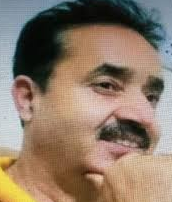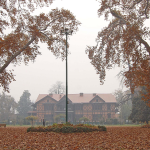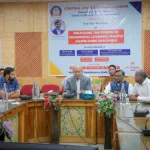In the cacophony of daily life in India, one sound that cuts through the air, day and night, is the blare of car horns. Honking has become so ingrained in the country’s road culture that it’s hard to imagine a traffic scene without it. While the horn is designed as a safety device, in India, it has evolved into a means of communication, a signal of impatience, and, often, a weapon of frustration. The constant honking on Indian roads not only reflects the chaotic nature of its traffic but also highlights deeper issues related to road discipline, urban planning, and public awareness.
In India, honking is almost as reflexive as breathing. Whether in a congested city street or on a lonely highway, drivers use their horns to announce their presence, urge others to move, express irritation, or simply as a way to navigate through the chaos. The honk has become the language of the road—a medium through which drivers convey everything from a polite nudge to an aggressive command. This culture of honking is a byproduct of the densely packed traffic conditions where vehicles jostle for space, and the rules of the road are often bent or ignored.
Honking in India is not just about safety; it’s about survival. The roads are often shared by an eclectic mix of vehicles—cars, trucks, buses, auto-rickshaws, bicycles, and pedestrians—all moving in unpredictable ways. In such an environment, honking becomes a way to assert oneself, to create an auditory space where visual space is limited.
While honking might seem like a necessary evil in India’s road environment, the consequences are far-reaching. The incessant noise contributes significantly to noise pollution, especially in urban areas. According to the World Health Organization (WHO), excessive noise can lead to a range of health issues, including stress, hearing loss, sleep disturbances, and cardiovascular problems. In Indian cities, noise levels often exceed the permissible limits, with honking being a major contributor.
Beyond the physical health impacts, the culture of honking also affects mental well-being. The constant barrage of noise can lead to heightened stress levels, anxiety, and a sense of helplessness among road users. This, in turn, can exacerbate aggressive driving behavior, creating a vicious cycle of honking and road rage.
Indian traffic laws do acknowledge the problem of honking. The Central Motor Vehicles Rules, 1989, prohibit unnecessary use of horns in certain areas, including near schools, hospitals, and in residential areas during nighttime. Despite these regulations, enforcement remains lax. The sheer volume of vehicles and the lack of strict monitoring make it difficult to curb the practice effectively.
Moreover, the penalties for excessive honking are minimal, often not enough to deter habitual offenders. This lack of stringent enforcement and the minimal repercussions contribute to the widespread disregard for the rules, perpetuating the culture of honking.
The tendency to honk is also indicative of a broader issue with road etiquette in India. Road users often display a lack of patience and a disregard for the rules, leading to chaotic and sometimes dangerous driving conditions. Honking becomes a tool to assert dominance on the road, rather than a signal used judiciously for safety.
This lack of road discipline is partly a reflection of the inadequate driver training and the laxity in issuing driving licenses. Many drivers are not adequately educated about the rules of the road or the appropriate use of the horn. As a result, honking becomes a default response to any perceived obstruction or delay.
The honking problem in India is also closely tied to urban planning and infrastructure. The rapid urbanization of Indian cities has led to overcrowded roads, inadequate public transport systems, and poorly designed road networks. The lack of proper signaling systems, pedestrian crossings, and dedicated lanes for different types of vehicles creates a chaotic environment where honking becomes a means of survival.
Furthermore, the high population density in cities means that residential areas are often located near busy roads, amplifying the impact of noise pollution. The absence of green buffers, sound barriers, and zoning regulations exacerbates the problem, making the noise from honking an unavoidable part of daily life for many urban dwellers.
Addressing the issue of honking on Indian roads requires a multi-faceted approach. Firstly, there needs to be a stronger emphasis on driver education. Driving schools should not only teach the technical aspects of driving but also instill a sense of road etiquette, including the appropriate use of horns. Public awareness campaigns can also play a crucial role in changing attitudes towards honking, emphasizing the health and social impacts of noise pollution.
Secondly, stricter enforcement of traffic laws is essential. Authorities need to impose heavier fines and penalties for unnecessary honking, especially in designated silent zones. The use of technology, such as noise-detecting cameras, could help in monitoring and penalizing offenders more effectively.
Urban planning also has a critical role to play. Cities need to invest in better road infrastructure, including the development of dedicated lanes for different types of vehicles, improved public transport systems, and better traffic management solutions. Creating more pedestrian-friendly spaces and reducing the need for private vehicles can also help in alleviating traffic congestion and, by extension, the need for excessive honking.
Ultimately, reducing honking on Indian roads requires a shift in mindset. Honking is often a symptom of deeper issues, including impatience, a lack of respect for others on the road, and a general disregard for rules. Cultivating a culture of patience and mutual respect among road users is essential for creating a more harmonious and less noisy environment.
This change in mindset can be encouraged through education, awareness campaigns, and by setting positive examples. When drivers learn to navigate the roads with care and consideration for others, the need for incessant honking diminishes. This shift not only makes the roads safer and more pleasant for everyone but also contributes to a healthier urban environment.
Honking on Indian roads is more than just a nuisance; it is a reflection of the challenges faced by the country’s transportation system. While honking may seem like a necessary tool in navigating India’s chaotic traffic, its overuse has serious consequences for public health and well-being. Addressing this issue requires a combination of better education, stricter enforcement of traffic laws, and improvements in urban planning. Most importantly, it calls for a change in the way road users interact with each other—a move towards patience, respect, and discipline on the road. Only then can we hope to reduce the cacophony of honking and create a quieter, more peaceful urban landscape in India.
(Author is a columnist and can be reached at: [email protected])








